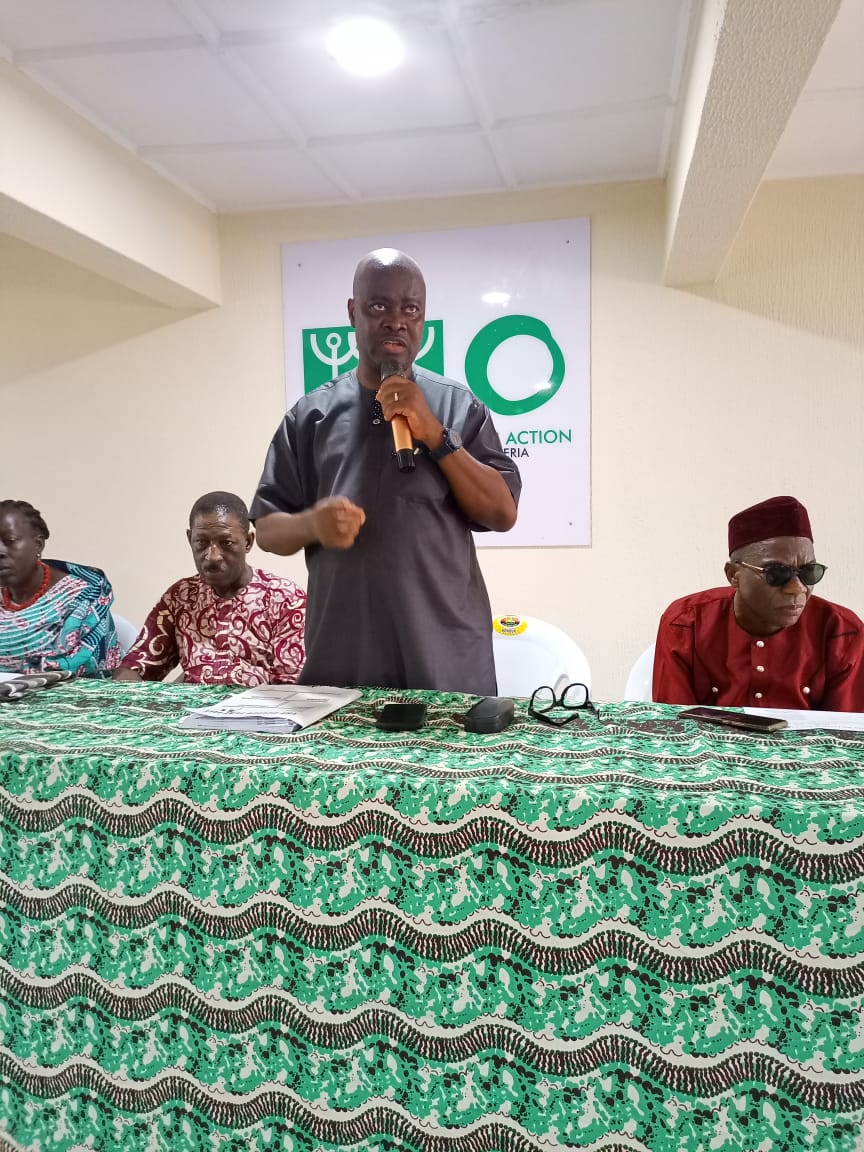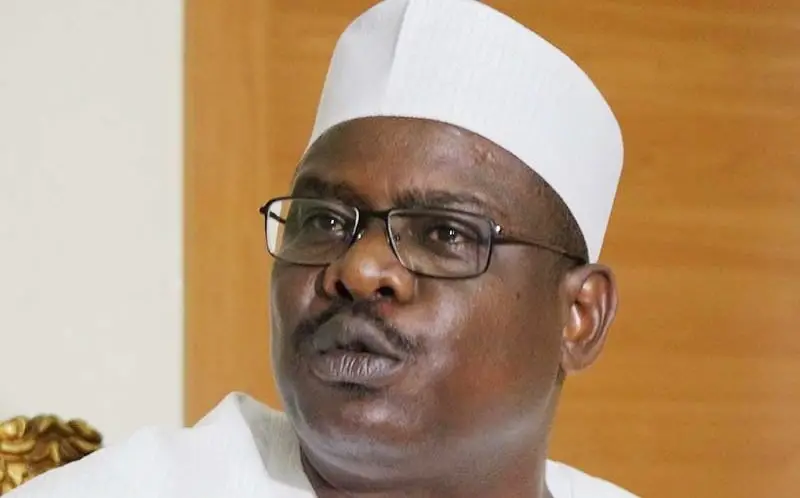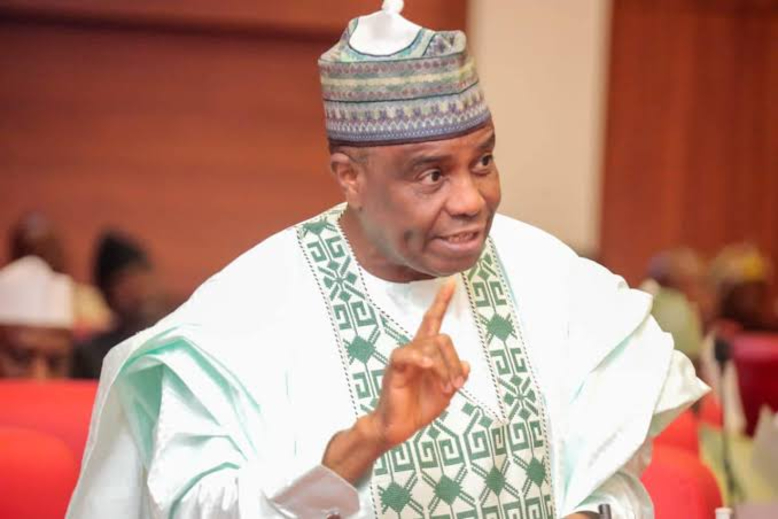News
N’Delta Fishermen Write Buhari, Seek End To Environmental Pollution, Degradation

Joseph Ebi Kanjo, Benin
Representatives and leaders of Artisan Fishermen Association of Nigeria from the five Niger Delta states, have called on President Muhammadu Buhari, to prevail on multi-national oil giants in putting an end to the environmental degradation and pollution in the region; and take responsibility for the destruction they had caused over the years.
This was contained in an open letter addressed to President Buhari which was handed to newsmen on Wednesday in Benin when representatives and leaders of the fishermen paid a congratulatory visit to the 2022 Goldman Environmental Prize for Africa winner, Chima Williams, Esq.
The fishermen, who happen to be victims of Shell Bonga oil spill, lamented that the continuous effect of the activities of oil companies had not only destroyed their main source of livelihood, but also posed a serious threat to the people’s health.
The group who spoke through their lawyer, Chima Williams Esq., who is also the Executive Director, Environmental Rights Action/Friends of the Earth Nigeria, sought a workable solution to the environmental despoliation arising from operations of the oil companies.

Williams, who commended President Buhari for the positive steps taken in environmental protection and preservation over the years, appealed to the President to ensure that petroleum extractive companies were compelled to live up to their responsibility of restoring the environment.
READ ALSO: N45.7bn Court Judgement: Shell Accused Of Ripping Off EJAMA-Ebubu Community
The letter reads in part: “Mr President, I want to use this medium to appeal to you to use your good offices and as a caring father to bring all the parties together including all the petroleum extractive companies, such as Shell, Exxon Mobil, Nigerian Agip Oil Company and Total Energy and the victims of their operations, relevant government agencies and authorities to discuss workable solutions to the environmental despoliation arising from their operational methodologies in the country.

“A situation where we currently have the multinational oil companies running away from their responsibilities of restoring the Nigerian environment to the way it was before their extractive adventures, restituting citizens, whose livelihoods pattern have been either distorted or dislodged by the dislocation of their societal fabrics in the name of divestment, should also be addressed, and operations discouraged until the needful is done.
“I believe that as a listening father, you have always been attending to the downtrodden masses of Nigerian, especially the fishermen victims of Shell Bonga oil spill. I believe that you will bring succour to them before your administration winds up.”
News
New Tax Laws: Suspend January 2026 Implementation — Senator Ndume Tells Tinubu

Former Senate Leader, Ali Ndume has appealed to President Bola Ahmed Tinubu to suspend the January 1, 2026, implementation of the country’s new tax laws amid growing controversy.
The federal lawmaker made the appeal in a statement he issued on Wednesday in Abuja.
This comes as the Nigerian Bar Association demanded the suspension of the implementation.
Recall that a member of the House of Representatives, Abdussamad Dasuki, had last week called the Parliament’s attention to alleged alteration to the tax laws.
READ ALSO:FIRS Confirms NIN As Tax ID
Chairman of the Presidential Fiscal Policy and Tax Reforms Committee, Taiwo Oyedele, in an interview on Arise Television on Wednesday, called for calm over claims of alterations in tax laws and urged Nigerians to allow lawmakers to complete their investigation before drawing conclusions.
Speaking on the ongoing controversy about the tax laws, Ndume noted that proceeding with the implementation without getting to the root of the alleged forgery will create a legitimacy challenge for the tax laws.
His statement read, “With the controversy surrounding it, the President should constitute a team to verify the veracity of the claim and act accordingly.
“As the responsive leader that he has always been, he should look at it to find out if the copy that was signed and the claim of alterations are genuine so that he will do the needful to bring the controversy to rest.
READ ALSO:US Threatens To Sanction Countries That Vote For Shipping Carbon Tax
“If not, the controversy will continue.” That is to say, the tax law will not be implemented, because you can’t build on nothing.
“So, Mr. President should suspend the implementation until the issues are resolved because so many civil society organizations, the Arewa Community, and the Nigerian Bar Association are saying that he should withdraw the tax law and investigate the allegation of forgery.”
“Therefore, Mr President should get to the root of the allegation of forgery. The small committee that will be set up should look into it while the House of Representatives does its own.”
News
Tambuwal Engages Security Agencies As US Airstrikes Hit Own LG In Sokoto

Senator Aminu Waziri Tambuwal, representing Sokoto South, has called on residents of Sokoto State to remain calm following reports of United States airstrikes targeting ISIS-linked terrorists on Christmas Day.
In a statement posted on his personal X account, the former Sokoto State governor said he was aware of reports concerning the airstrikes, which marked a direct US military action in Nigeria based on intelligence about ISWAP threats, and urged citizens to remain law-abiding while authorities clarify the situation.
“I have noted the reports concerning an airstrike carried out as part of ongoing counterterrorism efforts through cooperation between the federal government of Nigeria and the United States,” Tambuwal said. “I urge our communities to remain calm and law abiding as relevant authorities clarify the circumstances surrounding the operation.”
READ ALSO:US Dept Of War Shares Video Of Air Strikes In Nigeria
Tambuwal assured constituents that he was engaging with relevant security agencies to obtain full details of the operation and to ensure that necessary things were in place to protect civilians.
“I wish to assure the people of Sokoto South that I am in active talks with relevant security authorities to obtain full details and ensure that all necessary safeguards are upheld,” he added.
The senator emphasised that counterterrorism operations were aimed strictly at criminal and terrorist elements threatening public safety, not innocent civilians who are often victims of insecurity. He stressed that the protection of civilian lives must remain central to all legitimate security actions.
He further called on community leaders, traditional institutions and residents to work closely with security agencies by sharing credible intelligence and resisting misinformation capable of causing fear or heightening tension.
News
Rep Moore Confirms 12 Tomahawk Missiles Launched In Sokoto

No fewer than 12 Tomahawk missiles were on December 25 launched against terrorists in Sokoto State by the United States military.
Rep Riley M. Moore, the lawmaker representing Virginia’s Second District in the Congress, confirmed this in an interview with Fox News.
The US military operated in Sokoto State on Christmas night, bombing terrorists killing innocent people in parts of Nigeria.
READ ALSO:Trump’s Airstrikes: Halt Military Cooperation With US Immediately – Sheikh Gumi Tells Tinubu Govt
Some security analysts claimed on Friday that the operation was unsuccessful and had no significant impacts on the targeted terrorists.
According to them, the airstrikes landed in safe places including farms where there was no history of terrorists’ hideout.
But details began to emerge on Friday night, indicating that several terrorists were killed during the joint operations between the US army and it’s Nigerian counterpart.
READ ALSO:Nigerian Ringleader Of Nationwide Bank Fraud, Money Laundering Jailed In US, Says FBI
Moore said: “This year, thanks to President Trump, Radical Islamic Terrorists were on the receiving end of 12 Tomahawk missiles as a present.
“The successful strikes on ISIS, in coordination with the Nigerian government, is just the first step to secure the country and end the slaughter of our brothers and sisters in Christ”.
DAILY POST reports that residents of Sokoto State have been panicking since the US military operation.

 News5 days ago
News5 days agoUBTH CMD Marks 120 Days In Office, Expresses Commitment To Providing Conducive Working Environment

 News5 days ago
News5 days agoFIRS Confirms NIN As Tax ID

 Metro5 days ago
Metro5 days agoFintiri Pardons Man Sentenced To Death For ‘Killing Herdsman In Self-defence’, Others

 News4 days ago
News4 days agoJUST IN: Kano Lawmaker, Sarki Aliyu Daneji, Dies Hours After Colleague’s Passing

 News4 days ago
News4 days agoFULL LIST: Churches That Don’t Celebrate Christmas

 News5 days ago
News5 days agoKWAM 1 Withdraws From Awujale Race, Ends Court Challenge

 Metro5 days ago
Metro5 days agoPetrol Tanker Crashes Into Akpabio’s Convoy, Kills Police Dispatch Rider

 Headline2 days ago
Headline2 days agoJUST IN: US Forces Bomb Terrorists Camps In Nigeria

 News3 days ago
News3 days agoOkpebholo Slams ₦25bn Libel Suit On Edo PDP Chairman

 Politics5 days ago
Politics5 days agoPDP Crisis: INEC Rejects Turaki-led NWC
































